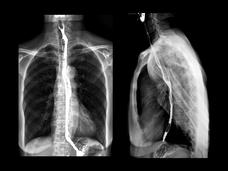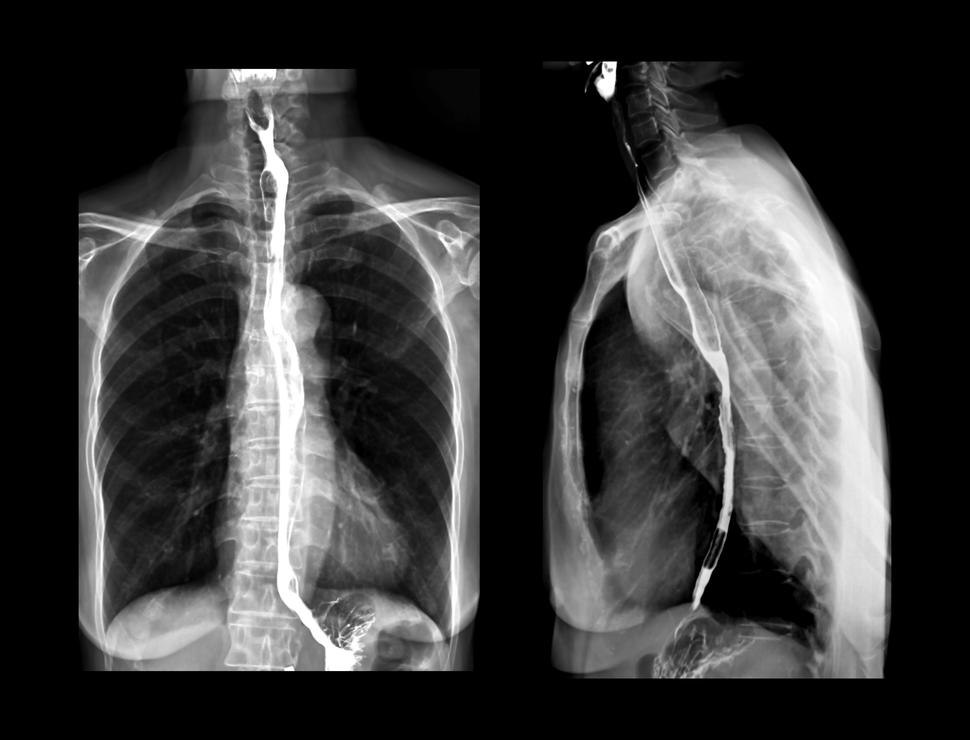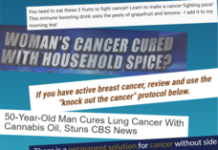, by NCI Staff
For some people with advanced esophageal cancer, two immunotherapy-based combination therapies are more effective than chemotherapy alone, which is the current standard treatment, according to the results of a large clinical trial.
The combination therapies evaluated in the trial were the immune checkpoint inhibitor nivolumab (Opdivo) plus chemotherapy and nivolumab plus the immune checkpoint inhibitor ipilimumab (Yervoy). The trial, CheckMate 648, included 970 patients with advanced or metastatic esophageal squamous cell carcinoma that could not be treated surgically.
When compared with chemotherapy alone, both combination therapies improved how long patients lived by several months, according to results presented at the American Society of Clinical Oncology (ASCO) annual meeting on June 3.
Each of the combination therapies represents a new standard of care for patients with previously untreated advanced or metastatic esophageal squamous cell carcinoma, said Ian Chau, M.D., of the Royal Marsden Hospital in Sutton, the United Kingdom, who presented the findings.
Most patients diagnosed with advanced or metastatic esophageal squamous cell carcinoma who receive standard chemotherapy do not survive for a year, noted Dr. Chau.
Julie Gralow, M.D., ASCO’s chief medical officer, agreed that the combination therapies would likely expand treatment options for some patients. These therapies, she noted during a press briefing, were superior to standard chemotherapy, particularly among patients whose tumors express certain levels of a protein called PD-L1.
The combination of nivolumab and ipilimumab is the first treatment regimen without chemotherapy shown to benefit patients with previously untreated advanced esophageal cancer, Dr. Gralow said.
Immunotherapy Regimens Expected to Expand Treatment Options
The two most common forms of esophageal cancer are squamous cell carcinoma, which begins in cells lining the esophagus, and adenocarcinoma, which begins in cells that make and release mucus and other fluids.
In the United States, adenocarcinoma is the most common form of the disease and is diagnosed primarily in older white men. Squamous cell carcinoma is more common outside of the United States, particularly in less developed countries.
Following several recent drug approvals by the Food and Drug Administration, immunotherapy—both alone and with chemotherapy—has become a standard treatment for some forms of esophageal cancer, noted Carmen Allegra, M.D., a special advisor to NCI’s Division of Cancer Treatment and Diagnosis, who was not involved in the clinical trial.
“The new findings are important research results that will inform decisions about initial therapy for some patients with advanced esophageal cancers,” said Dr. Allegra, who specializes in the treatment of gastrointestinal cancers.
Improved Patient Outcomes
In the new study, 49% of the patients in each combination therapy group and 48% of the chemotherapy group had tumors that were PD-L1 positive (that is, the tumors had PD-L1 levels of 1% or higher). PD-L1 is involved in the body’s immune response and is a potential indicator of responsiveness to immune checkpoint inhibitors.
| Treatment group | Median overall survival | ||
|---|---|---|---|
| All participants | Participants with PD-L1+ tumors | ||
| Nivolumab + chemotherapy | 13.2 months | 15.4 months | |
| Nivolumab + ipilimumab | 12.8 months | 13.7 months | |
| Chemotherapy alone | 10.7 months | 9.1 months |
With a minimum of 13 months follow-up, overall survival with both of the combinations was better among patients whose tumors were PD-L1 positive, as was the percentage of patients whose tumors shrank (response rate).
The amount of time before the disease worsened (progression-free survival) also was improved among the PD-L1-positive patients in the nivolumab-plus-chemotherapy group, compared with chemotherapy alone.
Different types of side effects occurred among patients who received a chemotherapy-containing regimen and those who did not. The most common side effects associated with the chemotherapy-containing regimens were nausea, decreased appetite, and inflammation of the mouth (stomatitis). Side effects from the dual-immunotherapy regimen included rash, itching, and hypothyroidism.
The clinical trial was sponsored by Bristol Myers Squibb, the maker of nivolumab and ipilimumab.
Learning More about Immunotherapy and Esophageal Cancer
The new findings build on recent studies testing immunotherapy drugs in esophageal cancer. In 2019, the drug pembrolizumab (Keytruda) was approved for the treatment of some patients with advanced esophageal cancer.
The following year, researchers reported that using nivolumab plus chemotherapy as an initial treatment for advanced stomach cancer improved overall survival. That study, CheckMate 649, included patients with esophageal adenocarcinoma and patients with gastroesophageal junction cancer, which occurs where the esophagus meets the stomach.
“We now have better regimens for patients with advanced esophageal cancer and with gastroesophageal junction cancer,” said Dr. Allegra. “And we are learning how to best use immunotherapy in these diseases.”
The evidence that some patients with advanced esophageal cancer will benefit from a combination of immunotherapy and chemotherapy is “very solid,” Dr. Allegra said. “The new wrinkle is the use of the immunotherapy combination without chemotherapy.”
Because the current study was not designed to be a direct comparison between nivolumab with chemotherapy or ipilimumab, more research is needed to learn which patients might benefit most from one regimen or the other, he added.










